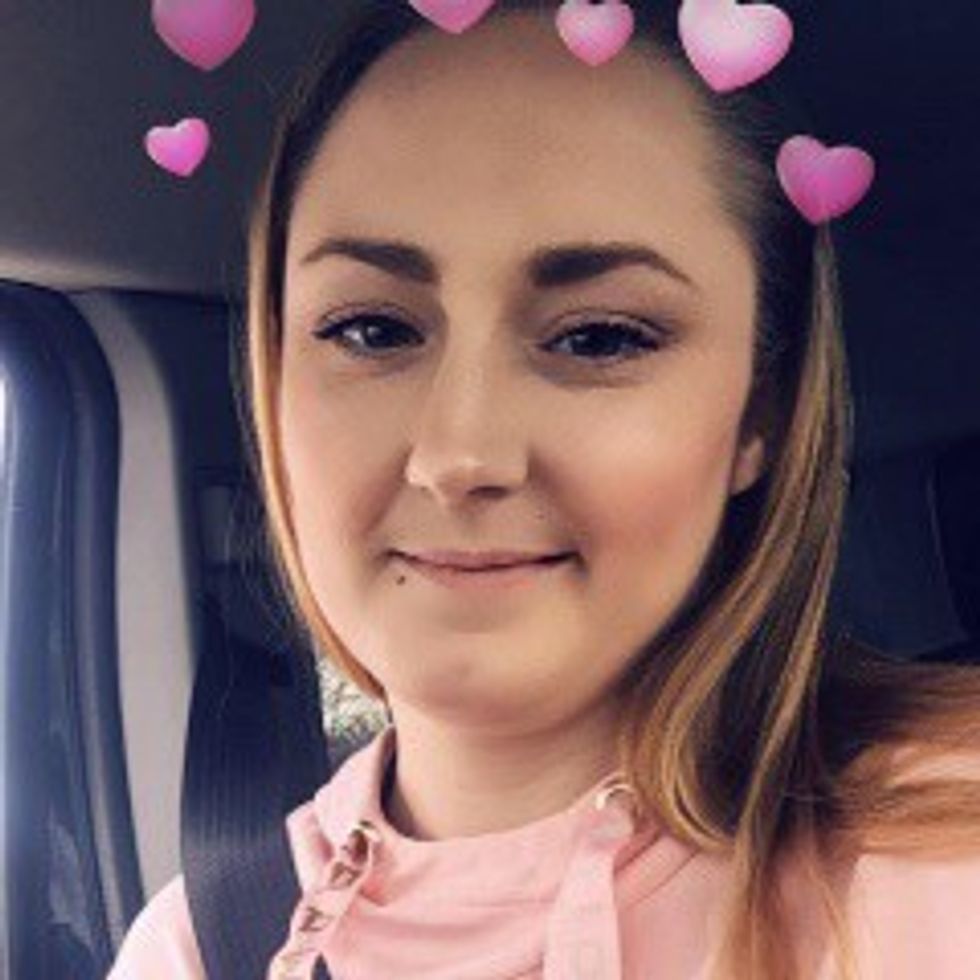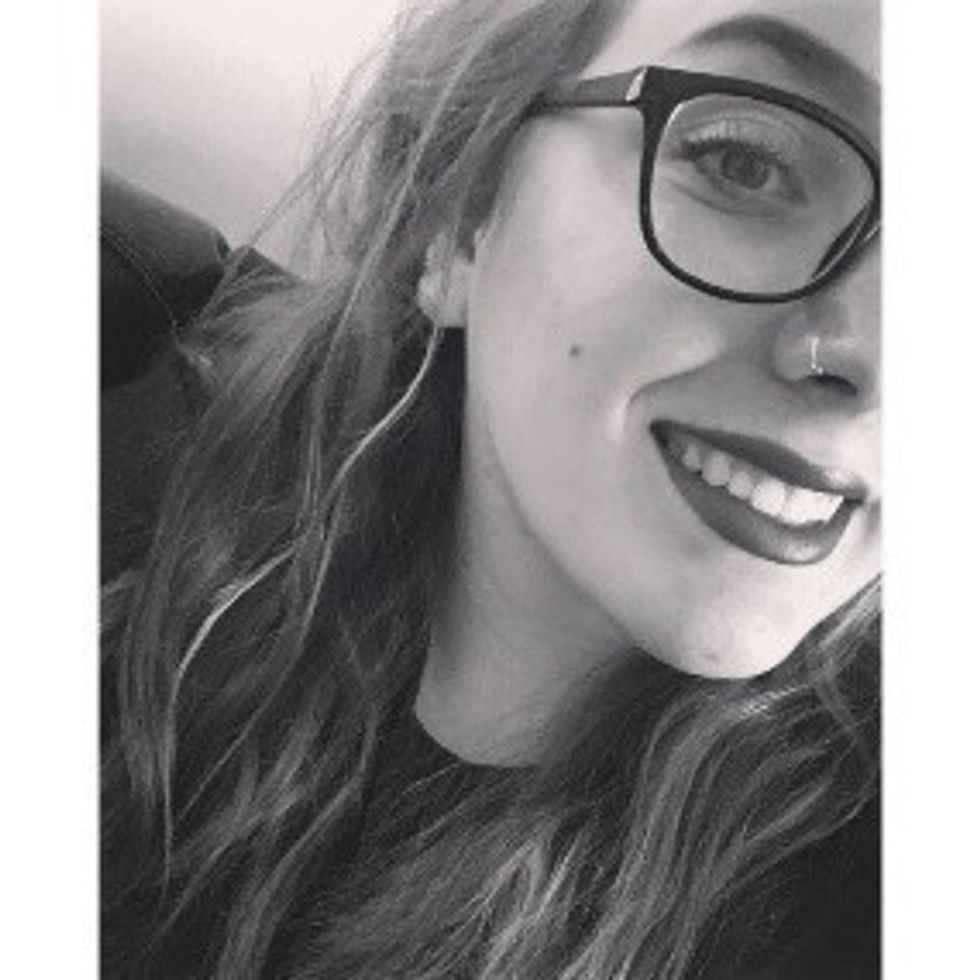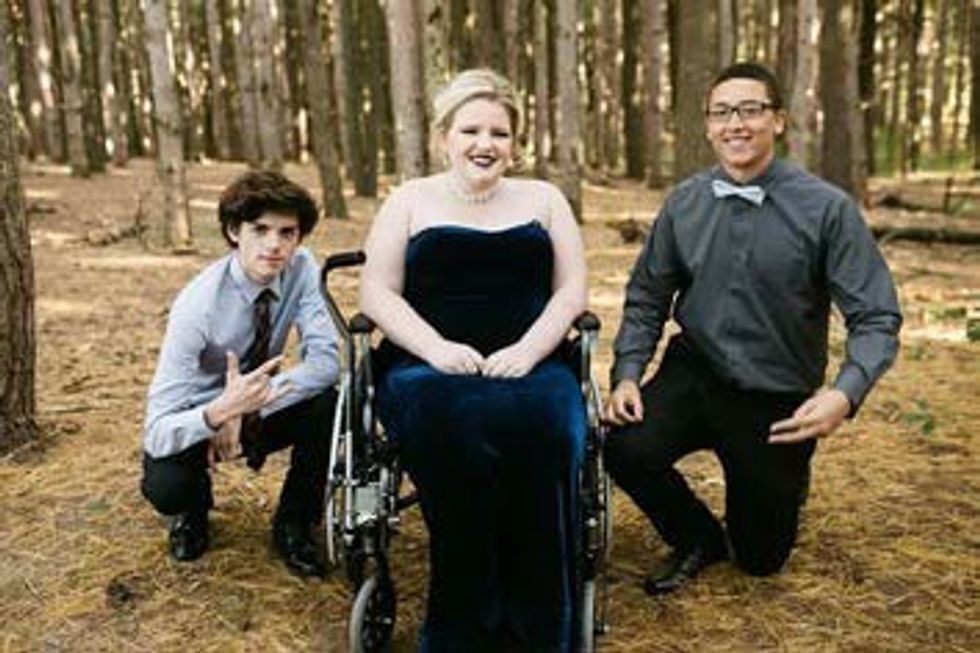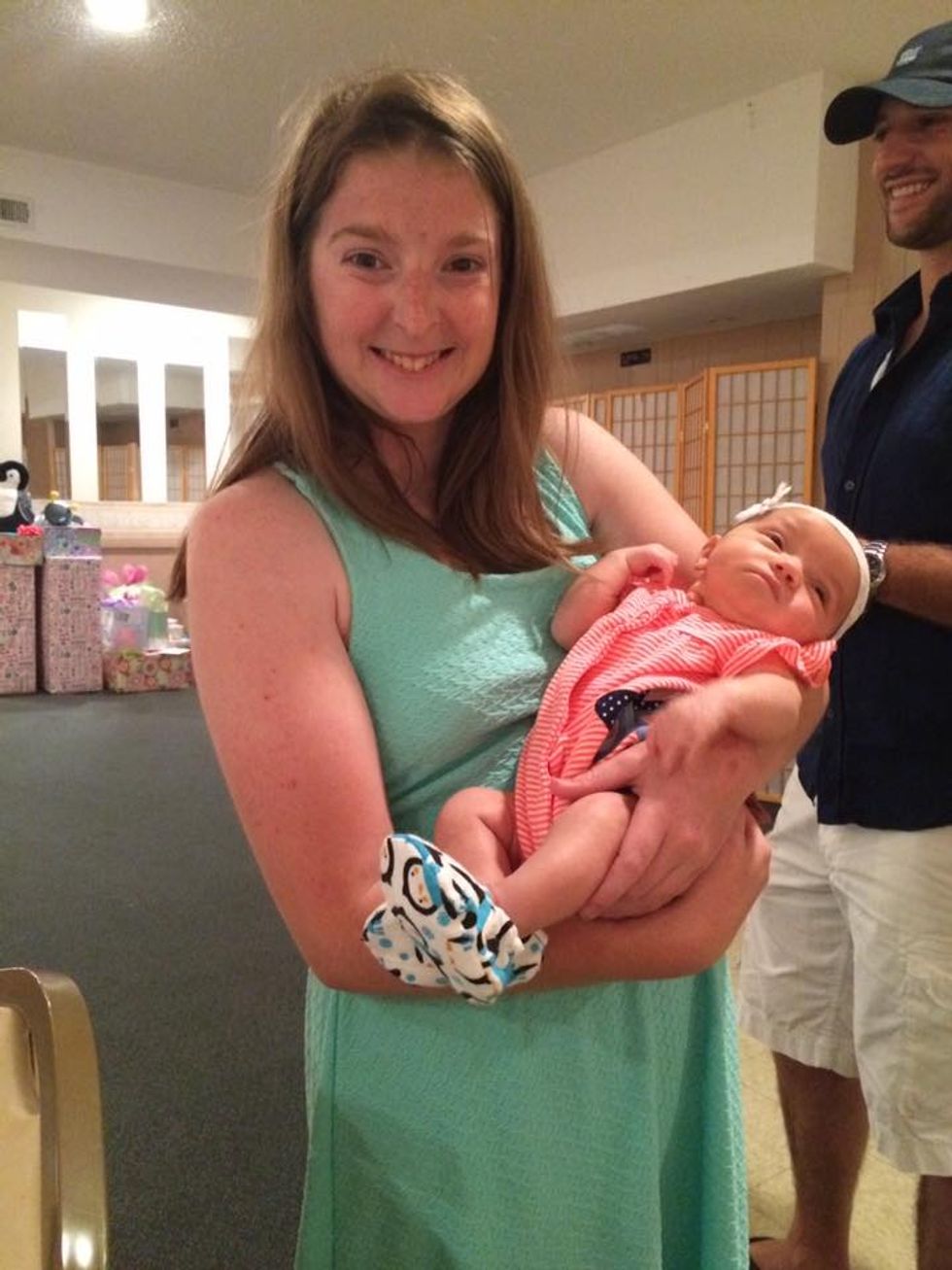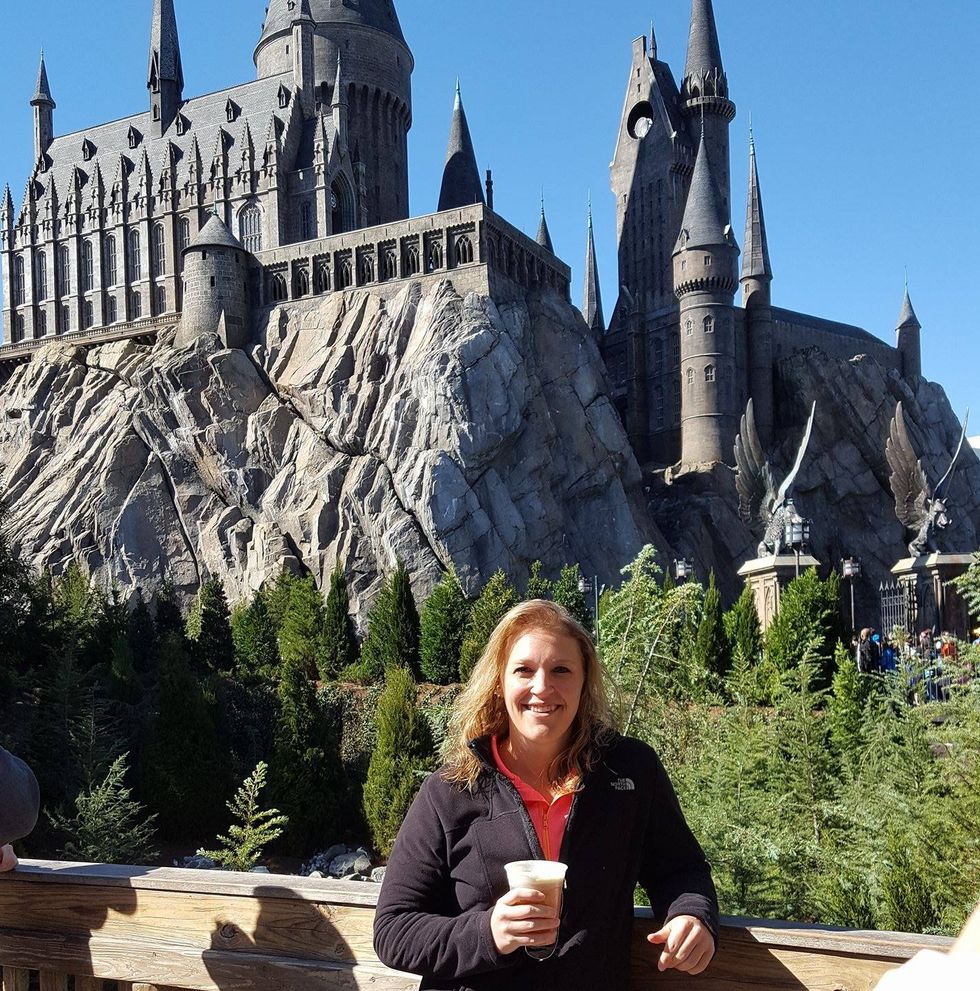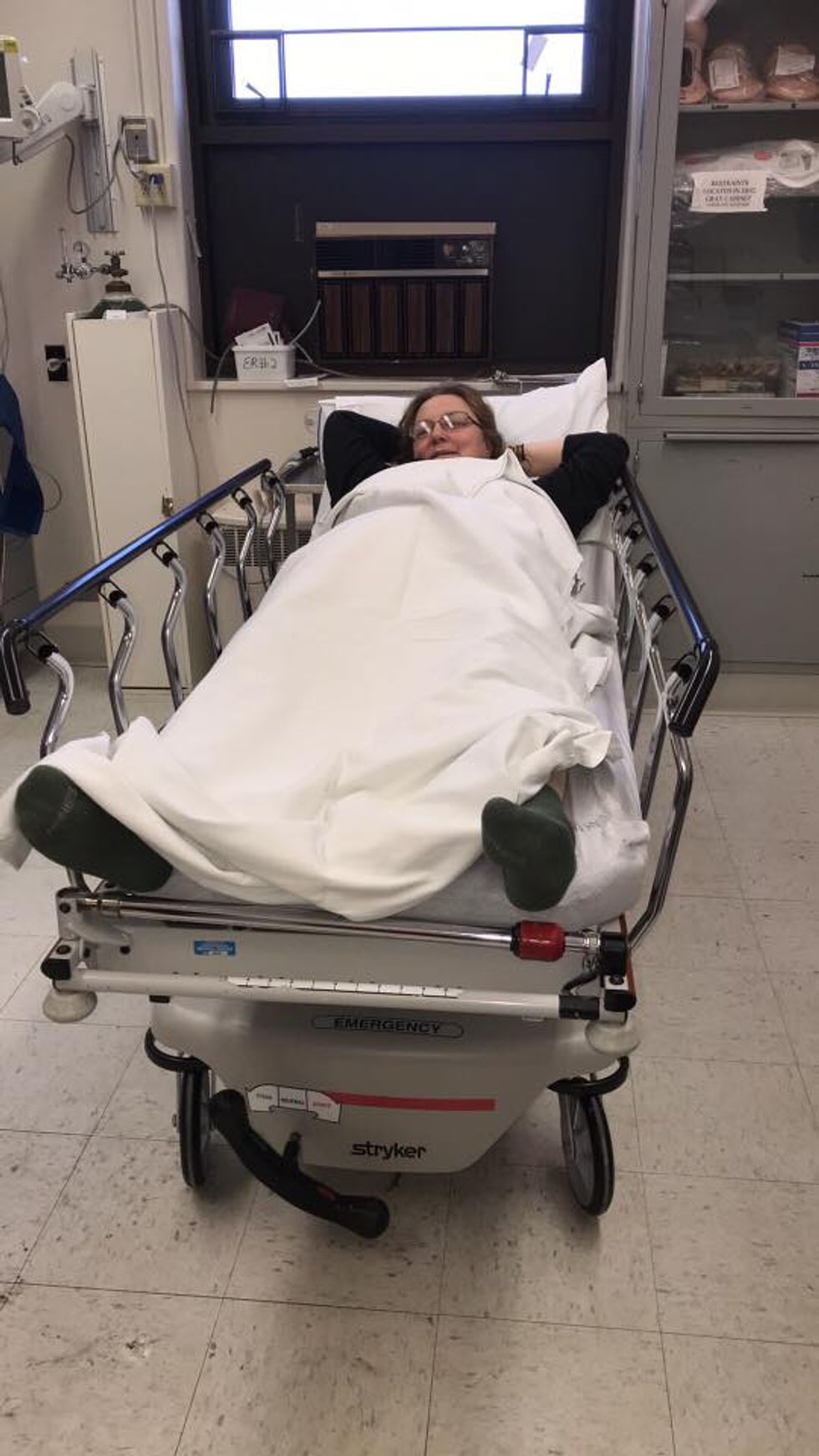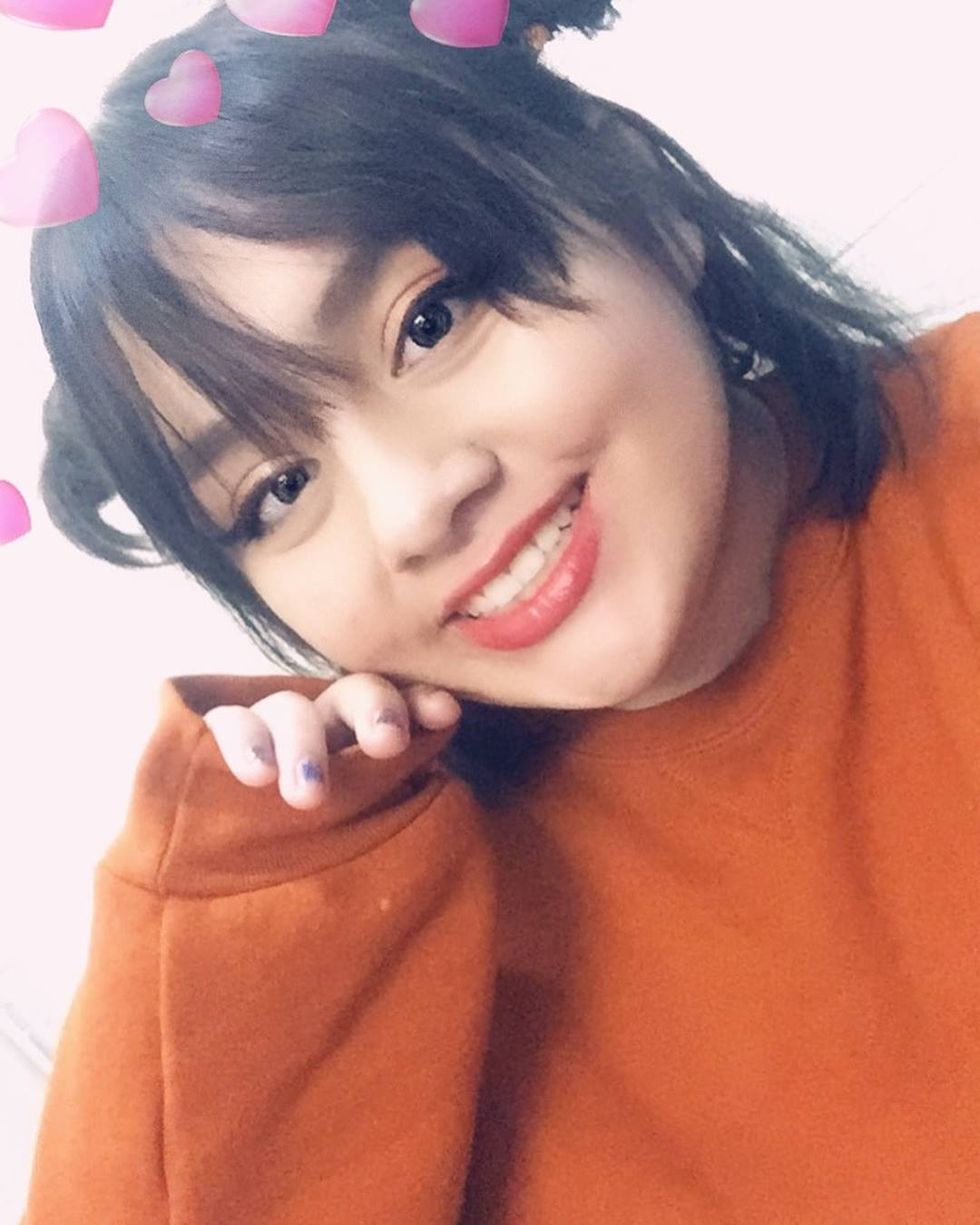Hello, my name is Tatum Oxford.
I am an eighteen-years-old pre-med student, as well as a certified nursing assistant (CNA). I aspire to be a physician’s assistant, because I want to enhance patient experiences.
I battle chronic pain, chronic migraines, IBS, vertigo, PTSD, anxiety, depression, and more. I started showing signs of a neurological disorder at age twelve. I had many negative experiences with medical professionals throughout my preteen years, as I was viewed as a hormonal, dramatic, young girl. I wasn’t taken seriously by anyone besides my primary care physician. He is the reason I have faith in the medical system. I want to treat patients as he treated me; with patience, understanding, respect, and validity I will express to my patients that my only goal is to help them. I never want someone to feel alone when battling a condition that’s isolating enough as is. This is the only the beginning to my story.
I chose to interview various people I know that have medical conditions or have endured medical emergencies. I asked them two main questions:
"I am researching what patients experience when they have a genuinely good visit at the doctor's office. I have two simple questions, if you could answer them that would be greatly appreciated. If so, would you be okay with me using your picture and answers for my project?
1- What health condition(s) do you have? And/or what medical emergencies have you faced?
2- What does a positive experience with a medical professional look like? What are things that stand out or make you consider someone a good nurse/doctor/pa etc.?"
These are their stories…
Jeannie
Endometriosis
I feel friendliness, empathy, sympathy, and compassion are also very good traits to have in the medical field. For example, the last time I went to my doctors to go over my endometriosis he asked me if I just wanted a hysterectomy to end everything. I told him it was a big decision to make and not only that, but also the thought of not being able to choose in the future to have more kids or not really affected me. The chances of them saving my uterus are slim to none it's so bad. My doctor looked at me and said “I know this is hard. You're not going to go through this alone. How about we try one more laparoscopy and see how it goes; you never know, you could be the one that beats the odds. You don't have to make any decisions right now. How about you call me when you're ready and we'll go from there". That to me is a reason he is one of the best doctors I know! No pressure, he thought of my well being, my mental health, and more importantly he treated me like a person, not a pay check.

Lupus, Rheumatoid Arthritis, Hashimoto's Disease
Good doctors take their time to really try and figure out what’s going on, while also communicating with my other doctors to get the bottom of things
Nicole
Polycystic Ovary Syndrome & chronic migraines
I think a positive patient experience entails the patient leading their health conversation. At the end of the day, the patient is the only person that can explain the symptoms that they’re having. It is a medical professional’s job to help them fight and recover. Reading the patient’s chart is obviously important, but letting the patient SPEAK creates an entirely different experience- a preferable experience. I’ve tried several doctors and the one that I have is phenomenal. She hears my concerns, helps me combat them adequately and even understands them. She’s offered me numerous options as far as treatment because it’s not a one-size-fits-all situation. Being able to have a personal relationship with a doctor or nurse is important to me. Involved healthcare is everything.

GAD & ovarian cysts
What stands out to me during an appointment is lots of eye contact when I'm speaking about my emergency or health conditions. This lets me know that I’m being listened to. Body language also tells me if they're concerned and that they care
Alyssa
I am an amputee from trauma, broke my femurs, pelvis, collar bone, ankle, left arm (which was snapped in half)
A sincere medical professional motivates their patients, never treating a patient as a burden, but as someone who genuinely needs help. Being attentive and treating each press of a call button as if it’s urgent are very important habits.
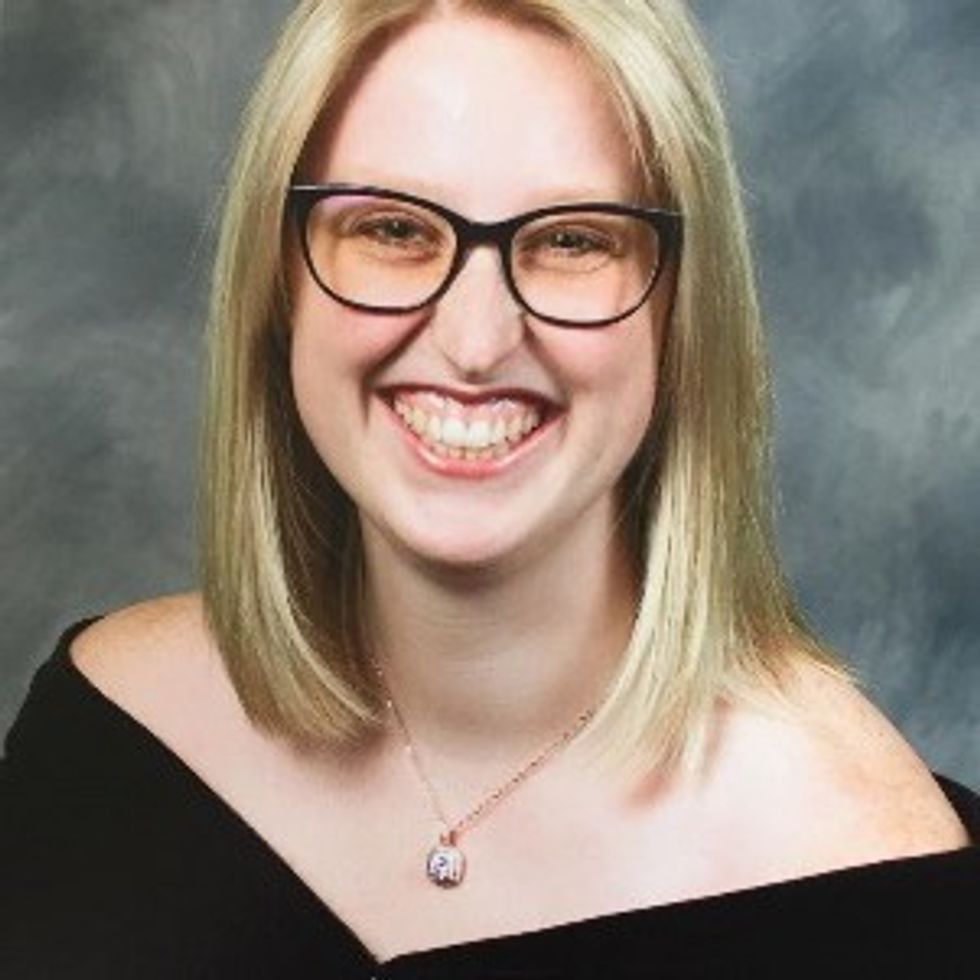
Chronic migraines
A true professional is willing to sit down and try to understand your life rather than look at you as some type of pill seeker. Once the professional starts to understand you, they usually start to work with you and develop an attack plan. I have been under the care of my doctor for chronic migraines since age 14. He knows my case and is comfortable attacking it from all angles. He even told me that if were ever to end up in the ER to call him, providing me with his personal phone number.

Asthma, low blood pressure, depression, anxiety, borderline personality disorder, insomnia
To consider someone a good nurse/etc., they should be genuine and passionate about the patient and their problem(s). I also like to be updated of what’s going on during the visit if it’s a longer visit. I appreciate being checked in on multiple times rather than being left alone waiting. The use of soft tones keep me calm and help me to feel validated.

Depression & anxiety
A good doctor listens and assures you that your safety and growth are important.

Pectus excavatum & anxiety
I think a positive experience with a medical professional is when the pro listens to the patient, goes out of their way to not make the patient feel beneath them, or strange/weird for their medical issues.
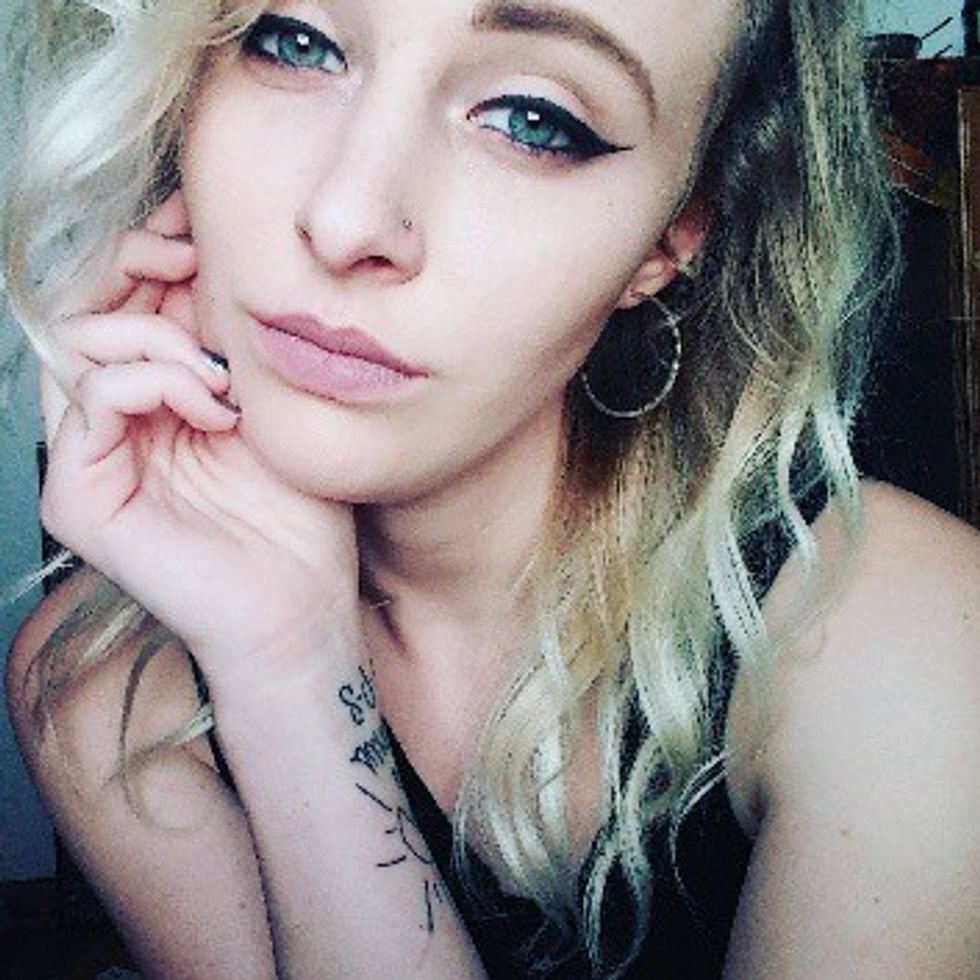
Postpartum depression/anxiety
A year after having my son, I was really struggling. I ended up checking myself into the hospital. I stayed for almost a week. At first it was difficult to adapt. I missed my son, but I knew I needed to receive help so I could be the best that I can for him. The first 2 days there I barely left my room. I just cried, read books, and wrote in my journal. The doctors there were very understanding and didn’t pressure me whatsoever. Eventually I started going to classes and groups. What stood out about the doctors there was their patience. They knew I felt uncomfortable at first. They let me grow involved at my own pace. They started me on medication and checked in everyday to make sure I was doing okay. I think what helped me the most were the other patients there. I made so many friends with people my age and people who were way older than me. Getting to speak to people that were going through the same thing as me, made me feel understood. When I left there I obviously wasn’t 100% healed. I still stress about working full time and raising my son by myself, but the doctors and patients there taught me coping mechanisms. To this day, those lessons and coping mechanisms still help me.
Alec
Tourette’s syndrome
Sadly, I haven’t had a good experience with a doctor regarding my condition. However, a good doctor listens to the patient and never insinuates the patient is a hypochondriac.
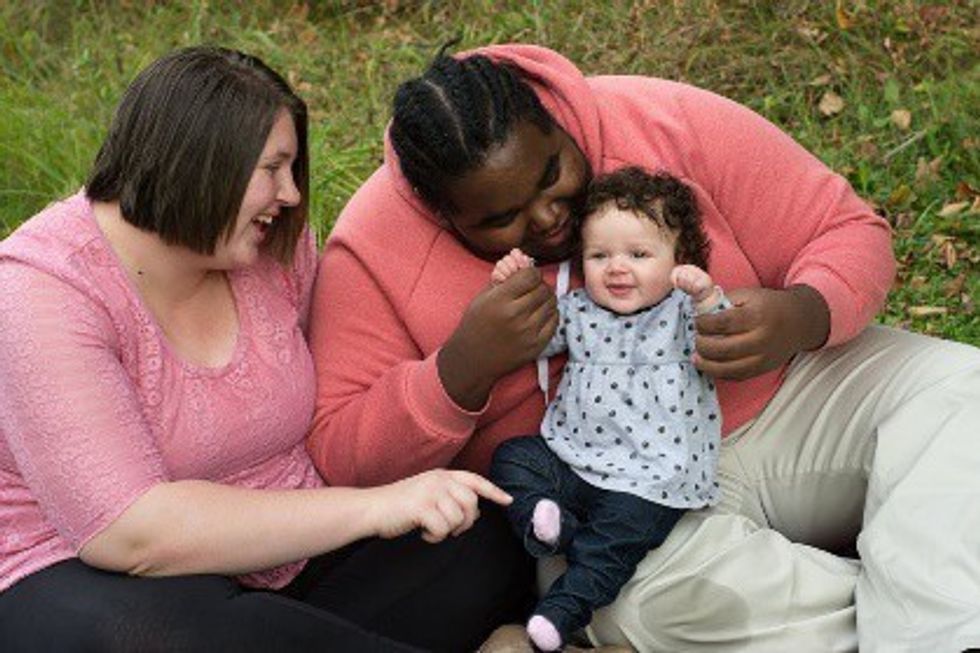
Giving birth & gall bladder issues
When I gave birth to my daughter, Enara, I also had my gall bladder removed. I had a wonderful experience giving birth. All the nurses and doctors were so kind. They would offer to take care of Enara during the night, so we could sleep. Everything that needed to be done was explained and demonstrated so well.
When I was having my gall bladder removed, my fiancé, daughter and I were in a small room for almost a week. There was an extra bed, but space was so cramped. I had to check in with the nurses throughout the day and night. The nurses were such good sports and were so good with Enara! If she was sleeping they would be so quiet, and if she was awake they would play with her and make her laugh and smile. They did all they could to make our stay easier. They said they were sad to leave because Enara made their day every day we were there.
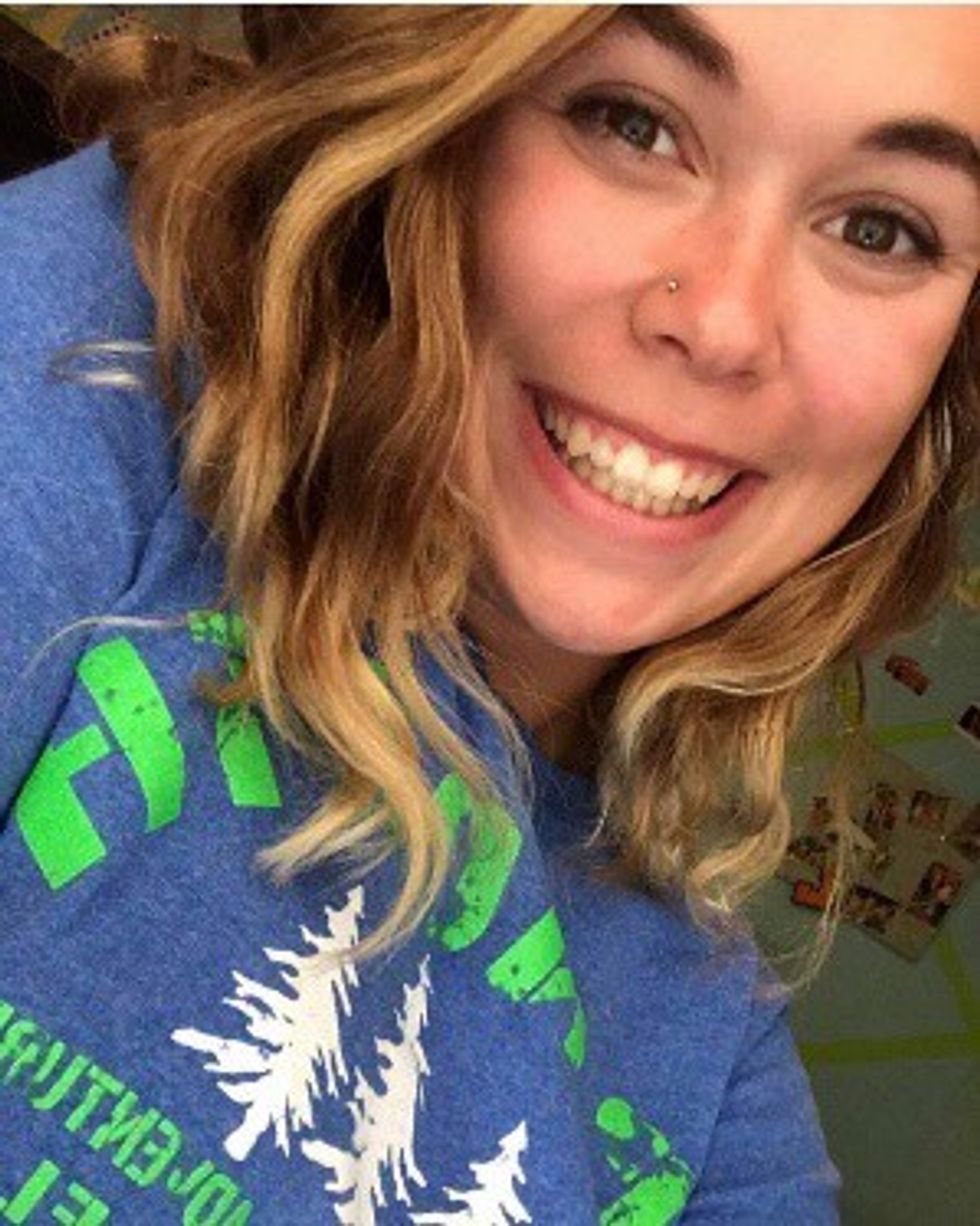
Scoliosis
I was diagnosed with double scoliosis at 10 years old and within a month I grew paralyzed, my heart and lungs dropped down to my hips, my shoulders, hips and ribs were out of place, my legs became uneven in length and my spine degree was at a 79 degree curve. The doctors had given me 2 weeks before my ribs would fall and crush my heart in my sleep. Eventually my condition would kill me. When I was then finding a doctor in a rush I was looking for someone who understood me and what I was going through that had the best in mind for me and did everything in their power to make me comfortable with going through several major surgeries. Still to this day since my diagnosis I still go to the same hospital and same doctor for 8 years now.

Undiagnosed condition with my reproductive system that my gynecologist is still trying to figure out.
I believe a positive experience with a medical professional, especially a regular doctor with routine visits, makes a personal connection with the person and treats the patient like they are the only concern that they have while in the appointment. I also believe that being willing to try every possible treatment for a condition is important.
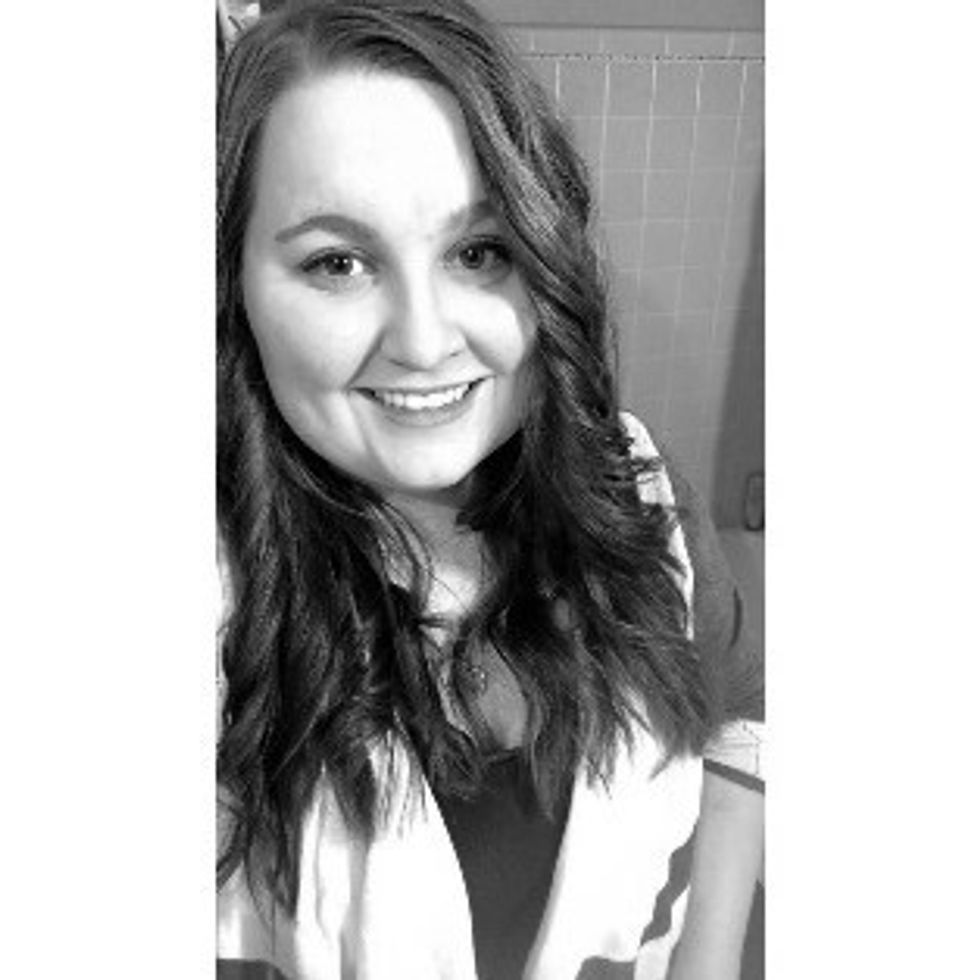
Appendix removal
During my junior year of high school, I was having some pain in my side one day. I dismissed it as period cramps because I was close to starting. By late evening, I was leaning over in pain and had a hard time breathing. I hadn’t ever experienced cramps this bad, so I was a little skeptical, but also in denial. It was late, so I decided to try to sleep, but I was only off and on able to sleep for a few minutes at a time, until 3 am rolled around and I was still in pain, and it felt like it was getting worse. My mom finally convinced me, “You’re going to the ER. We have to find out what’s wrong.” I ended up finding out that my appendix would have burst within the next day or two if I hadn’t gotten medical attention. I had my appendix removed the next day.
I think patience is one thing that is very important. It might be an obvious one, but it’s true. I work in a hospital, so I know that some patients can be more challenging to care for than others. Also, passion contributes to the patience factor, which leads to compassion too. Nurses that reassure patients and help them to calm down are the ones that make the biggest impact on a patient’s hospital stay.
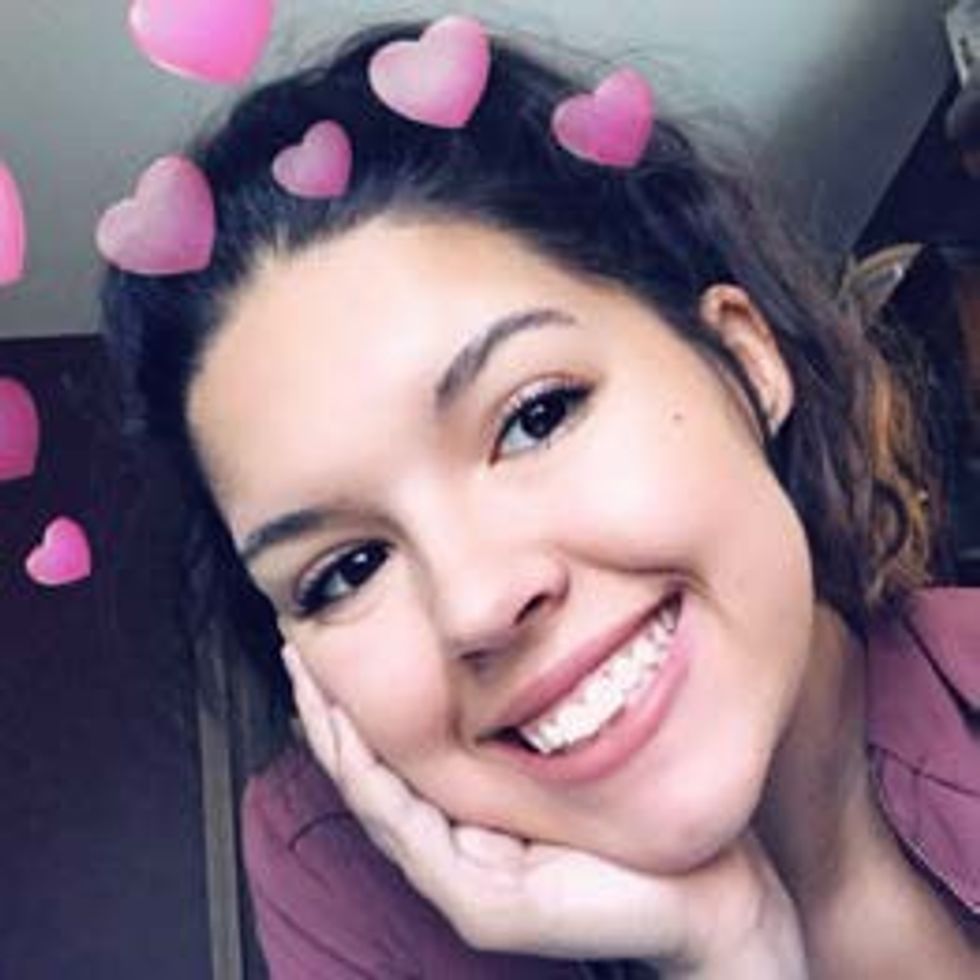
Heart and kidney issues
I live in a lot of discomfort, and sometimes need emergency dialysis treatments because of my kidney functions.
Someone that’s knowledgeable and understanding makes a good doctor. I get a lot of blood drawn, and I’m really terrified of needles, so my doctors always make sure to distract me before putting the needle in my arm. That way, I don’t freak out or pass out, and that’s always stood out to me a lot.
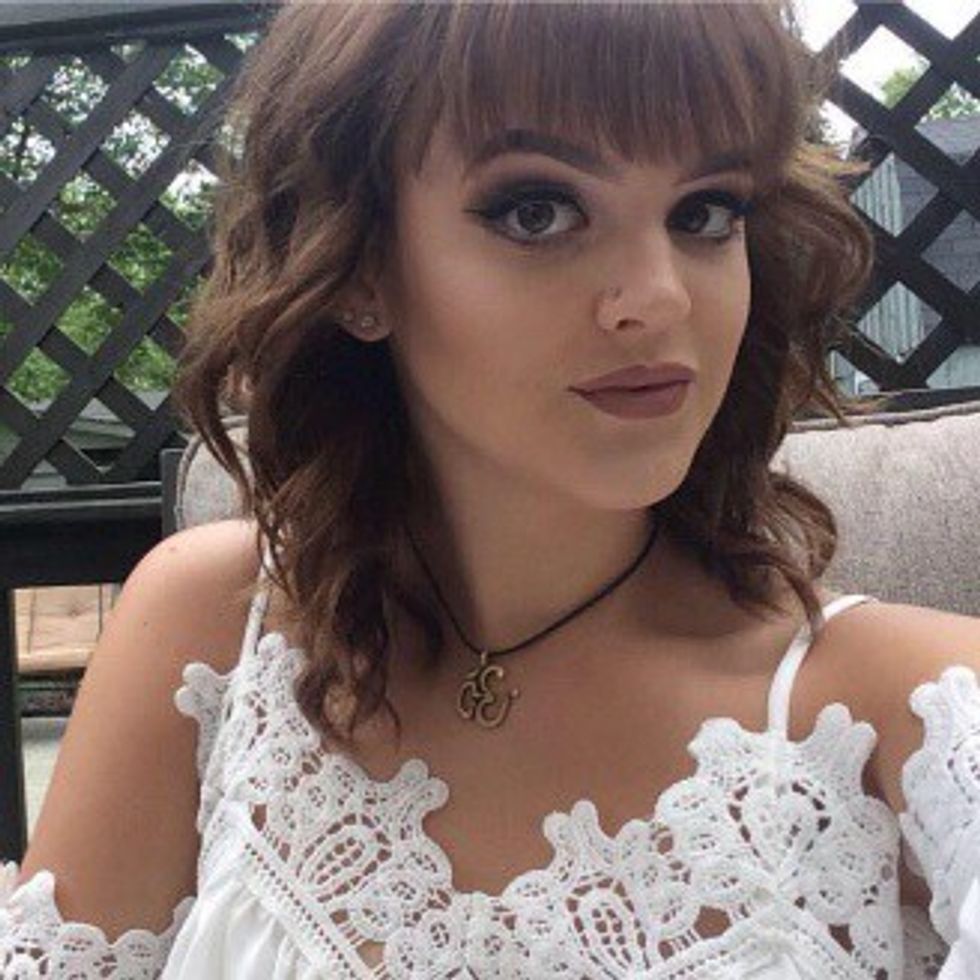
Idiopathic Intracranial Hypertension (rare neurological brain disorder)
I have experienced about 100 procedures, 7 forms of brain surgery, and several major surgeries like a VP shunt for treatment. I have traveled out of state to undergo treatment and I have taken almost every medicine there is and I’ve seen dozens and dozens of doctors. Unfortunately, since my condition is so rare, there is not a lot of research or knowledge on it.
I have had more negative experiences with medical professionals, but the there are a few positive memories that stay with me forever. When I had to get surgery with my old neurosurgeon at Riley Children's Hospital in Indianapolis, my neurosurgeons assistant would hold my hand and sing to me when I was about to go under anesthetics. Going under is always scary and it normally gives me a lot of anxiety beforehand. The nurse, Sadie, would make sure I was comfortable and ensure me that she was not going to leave my side until the end of the surgery. I still talk to Sadie today even though I have a new neurosurgeon at U of M, and she will still be the best nurse that I will ever have. She always went out of her way to see me and make sure I am comfortable. I think that is what makes her such a great nurse. If she knew I was getting surgery and she was home, she would come to the hospital to come see me. She had a huge heart and cared for everyone she took care of. I will forever appreciate Sadie.
Kaylee
Arnold Chiari Malformation, which is a Malformation of the brain. In short, my brain is too big and misshaped for my skull. It causes extreme migraines that have caused me to throw up and even pass out from the pain.
I was diagnosed when I was 10, which is already a scary time. But imagine having an MRI and having a bunch of wires attached to your skull when you're still too young to understand what's going on. My doctor made sure to explain my limits and my condition in simple terms and answered all my questions. She spoke to me, not my mom. It seems like a little thing, but it really helped me understand what was going on and why I was having so much pain.

PCOS (polycystic ovarian syndrome)
A good doctor makes you feel comfortable and secure. Someone that makes sure you know the necessary steps that will move you toward a healthier lifestyle.

Seizures, memory loss, & dyslexia
When I was around two years old I had multiple seizures, many of which caused me to stop breathing. As a result, I have brain damage. Due to the brain damage, I suffer memory loss and dyslexia. It is unsure if the seizures will pop up ever again, and if they do the severity is unpredictable.
A good medical professional explains to the patient what is going on, how to solve the problem, ensures your comfort, and maintains a positive attitude.
Katie
I struggle with multiple chronic health conditions that range from very common to very rare. Some of my health issues affect me every day and some I barely notice at all. My first diagnosis came at the age of 5. I was diagnosed with thin basement membrane kidney disease. According to The National Kidney Foundation Website, this disease “It is a rare disorder that has been diagnosed in less than 1 percent of the population.” They found this when I was 5 years old during my well child checkup in 2003. They do a urine test and when my results came back, my blood levels in my urine were very high and my primary doctor was very concerned. They had found that the blood levels were so high due to my walls of my kidneys thinner than the usual persons and so it was letting too much blood through into my urine. At this same time, they also had run blood tests and found that my blood does not clot as it should. Within that same week I was also diagnosed with a very rare bleeding disorder called Dysfibrinogenemia. This is in only about 300 known families in the world. I was then sent to Detroit hospital for a kidney biopsy and thankfully my kidneys have not gotten any thinner throughout my lifetime. The doctors had told my Mom and Dad to take me home and help me live a normal life and just take the challenges as they come. I was then mostly stable until around 2011. In 2011 my back began to really ache, and I told my Mom that I was hurting, and she had contributed the pain to the weight of my middle school backpack and told me to unload it. After weeks of trying to lower the amount of weight in my backpack, the pain still hadn’t gotten any better and I was finally seen by my doctor and back scans were taken. By 2013 I had been diagnosed with 3 different curves all around 20 degrees in my spine, known as scoliosis. In addition to this new diagnosis, I had also contracted Mono which made me very sick and weak for years to come. Throughout my lifetime I had small health issues that had compiled and the doctors that were on my care team in GR were not sure what could be causing it so I began to search for a great hospital in the US. I ended up going to Mayo Clinic in Rochester Minnesota. It was here that I was officially diagnosed with Ehlers Danlos Syndrome. This is a collagen disease. Collagen is in every single cell in our body and mine was never made correctly and it won’t ever be made correctly. This can cause extreme fatigue, brain fog, chronic pain, hypermobile joints, dislocations, sublocations and many other uncomfortable symptoms. I was also diagnosed with vocal cord dysfunction, severe acid reflux and pectus excavatum. Pectus excavatum means that my chest bone is pushing in on my heart and it sometimes makes it harder to breathe when I am very active. Once the diagnosis was in place, I found a closer doctor that could manage my collagen disease and I found that RUSH hospital in Chicago was the place I needed to be. This is my current care clinic and so far I have been diagnosed with Ehlers Danlos – Classical Type and Early Degenerative Disc Disease from my bone specialist. I then was seen back in GR by a sleep doctor and a sleep test was done that confirmed my exhaustion, I have narcolepsy type 2. This means that the receptor in my brain that controls how tired I am is over reactive due to a certain level in my spinal fluid being too high. This test was just done this past summer and I am still trying to figure out how to manage all of these chronic conditions. Overall, I currently have Vocal Cord Dysfunction, Dysfibrinogenemia, Thin Basement Membrane Disease, Scoliosis, Severe Acid Reflux, Pectus Excavatum, an aorta abnormality, Ehlers Danlos Syndrome, chronic pain and fatigue, Narcolepsy Type 2, Sinusitis and Asthma. It is a daily struggle to combat these health issues and be a full-time college student. I think the hardest symptoms for me is the exhaustion, back pain and the overall ache in my body that never really goes away.
A positive experience with a medical professional is SO important. Whenever I meet with a doctor, nurse or a PA I always notice if they have a solid level of eye contact with me. I feel that when they are looking right at me, it makes me feel important and that I am not just a patient with a number on their list for the day. A great medical professional also gets right to the point and doesn’t ask you about all of the extra things about school and the rest of life for the entire time. After quickly asking how you are doing, they then want to know your current symptoms and they promptly order a set of tests that could be used to figure out what is going on. When a doctor doesn’t sit there and speculate about what they could do and just jumps into action I think that makes them a great doctor! I also really think that a good medical professional really lets you know they care through eye contact, nonverbal movements or just saying it out loud. I think that I have been in the medical system as a patient for so long, I almost am able to feel the vibe of a new medical person in my journey right when I meet them. I think that first impressions are very important, and I am always looking to see if the doctor knows about my rare conditions or if they are asking me what they are. A medical professional also needs to be prompt and follow through with their word. This means if they say that they are going to order the test by the end of the day that needs to be done! It is so important to advocate for yourself as a patient in the medical world.
Kristen
Anxiety, depression, ADHD, and emergency throat expansion surgery
A good medical professional takes time to call you themselves to check on you. My doctor always assures me that what I mention during my appointment remains between the two of us. I feel less alone, as I am the only one in my family with these struggles, when I meet with my doctor.
Jennifer
Asthma, hidradenitis suppurativa (HS), & frequent non conclusive seizures
My asthma has caused me to be taken on more ambulance rides than I can count. As I grew up playing sports and frequently ran into issues! As a young girl, I remember being so afraid in an ambulance with people I didn't know where I'm hazing in and out of consciousness. There was one man I remember specifically who continued talking to me, explaining everything he was doing, continued asking me questions to make sure I was still awake and put his arm on my shoulder so I knew I was not alone. It was so comforting because I didn't have my parents there.
I have a rare autoimmune disease called HS and long story short, I have a compromised immune system that attacks healthy cells that my body believes to be invasive. It requires a strict medication regime, frequent steroid injections, routine doctor visits, specific dietary needs, and eventually, a daily injection once my inflammation decreases. There is no cure and I am at higher risk for specific cancers, so I have to be very, very understanding of my own body. When I was first diagnosed, I was very upset, confused and had so many questions. My doctor took the extra time to explain things, referred me to a dietician (as I have a very particular diet because eating certain things make my condition worse AND I’m vegan, so I am very limited in the foods I am able to have), gave me a ton of reading material and sources to learn more about what I was dealing with and even offered a hug when tears were shed. My doctor is a bit younger, pretty close to my age. She did not make me feel "weird" or "rare" or "unlucky". She treats me like I am normal even though I know I am not.
I suffer from frequent non convulsive seizures that are most likely related to another auto-immune disease that I have yet to be diagnosed with (my other condition often coexists with other autoimmune diseases so this is why we have begun exploring autoimmune possibilities. I have been tested for both epilepsy and narcolepsy, and strokes as well- all tests came back negative). I was experiencing seizures for years, and actually before I switched doctors, I had an extremely poor experience. My previous doctor did not believe me when I would explain something was wrong. I could tell there was something wrong, but I had no idea what it was, I just knew I didn't feel like myself. When I finally switched doctors, my new doctored ordered all my tests immediately and I remember crying in her office and her looking me directly in the eye saying "I won't stop until we figure this out" and she has just completely been on my team ever since that day.
The best doctors I've ever had have always been direct, honest and very specific. They make me feel comfortable and never act like what I’m experiencing is "crazy" even if it does happen to be a rare condition. My health is all they care about when I’m in their office.
Becky
Emergency C-section and ovarian cyst removal
The best nurse I’ve had is the nurse I had for my C-section. She was there when I arrived, it was the end of her shift, yet she stayed on her own time and never left my side until after delivery. I didn't have a consistent nurse with the other procedure, which was frustrating.
Allison
PTSD, MDD, SAD, ADHD, and GAD. Attempted suicide x2.
A good medical professional gives me options on what I COULD, or CAN do, not tell me what I SHOULD do. They also allow the patient to take the role as the expert on their own disorders, since only the patient can truly understand. Creating a space that I feel safe expressing concerns, successes, and questions is very important. I feel recognized when my personal background, thoughts, experiences, opinions, beliefs, and individual understanding of the world are taken into consideration. There is also a large difference between talking to the patient like a human instead of a case.
Olivia
Depression, learning disability & multiple concussions
When I go to the doctors/hospital, I expect to be taken care of by someone who is friendly, can make me smile and laugh a bit, but is also professional and trustworthy. That always makes me feel safe and helps me look at the brighter side of things.

Asthma (asthma attacks), tonsillitis, & kidney stones
A good medical professional takes me seriously, take into account what I think might be wrong, rather than simply assuming that I have no clue what's going on. They are overall pleasant and nice, occasionally joking and building a relationship, no matter how long or short it will be.
Larissa
Severe Hypoglycemia. And had many times that I have suddenly dropped do to sugar levels.
I hate hospitals, especially when I wake up in them with no recollection of what happened. So a good visit is when the doctor gets to me quickly and doesn’t treat me like I am unintelligent about my condition. With severe hypoglycemia, spells can happen even if you are very knowledgeable about what you ate and monitored it. So I would always get upset when a doctor would treat me as if I was unaware of my condition.

Undiagnosed cause of migraines
Over the course of 5 years I have been rushed to the ER for unknown medical reasoning. I’ve had abdominal pain and severe migraines for 5 years, multiple times I have been brought to the ER because the doctors thought my appendix has burst. I left every time with the statement of having “abdominal pain”, “acid reflux” or “gas bubble”. All incorrect. Over 5 years I have been put on anxiety medication, acid reflux medication, intestinal spasm medication, and seizure medication (for migraines + many more different medications for migraines). Freshman year I lost 20lbs + from puking every day because of the pain. In July 2016, I was rushed to the ER via ambulance, with signs of a stroke (couldn’t move, talk right, drooping of my side of my face) due to the intensity of my migraine. I was diagnosed with Hemiplegic migraine. I’ve had constant stabbing pain in my abdomen every day since freshman year of high school. In April 2017, I was brought into the ER due to a fever, yellowing of my skin and eyes, vomiting, and pain so bad I couldn’t walk. I had a CT done at the ER, they said that they found nothing and sent me home. Two days later, same symptoms, I was rushed to Helen Devos Children’s hospital ER. They did an X-Ray, CT, and Ultrasound. I was admitted into the hospital on Easter Sunday of April 2017 with abscesses on and in my liver and spleen. The doctors kept making rounds and giving me the same answer “we don’t know”. A week later an Infectious & Disease doctor came to tell me I had Histoplasmosis. Histoplasmosis is a bird transmitted disease, which was causing my pain right then. The doctors could not give me an explanation of how I got it. I was sent home on antibiotics to treat the infection. They sent me home with antibiotics. A month later, I was admitted back to the hospital with the same pain but somehow worse. The infectious disease doctor told me I then had Bartonella. A known infection transmitted by cats, also known as “Cat Scratch”. I have no cats and am not around cats. I was sent home with still no answers, and feeling as though they had to find a reason for the pain and my symptoms so they found an easy reason at the time, but they still had no idea. When I was admitted the second time, every nurse knew who I was because of how odd it was that I had both infections. Not odd to me, just not the reason for my pain and symptoms but they had to classify it under something. Since then, I am still in pain every day where I can’t breathe at times or walk, I’ve had ER visits because of the pain, sent to GI doctors, have had all the tests they could run, and have FINALLY been referred to U of M to get more testing done in hopes they can find the problem of the constant pain and the reasoning for the abscesses on my liver and spleen.
A positive experience with a medical professional is when they don’t dismiss my pain before they see my scans from the tests they had ran, and not basing my pain or severity of my pain/my health based on my outer appearance. In my experiences, going to the ER has always been a bad experience, many of the doctors thinking I’m always there just for pain medicine, but I am only desperate for answers. I have been told “our main priority is make sure you’re safe now, we do not care about the future”. What I believe makes a good health care professional is when they have listened to me and my symptoms and seen my scans, and have told me they do not know the problem but that I will have answers and possible treatments in the future, rather than just medicating me.
Kim
Torn ACLs & ACL replacement surgeries
I recently had a skiing “accident” in which I tore the ACL’s in both of my knees - requiring surgeries to replace them. While my procedure and “emergency” pales in comparison to many other people’s emergencies, I was quite apprehensive before the procedure. Much to my surprise, each medical professional that was scheduled to take part in my surgery met with me prior to being rolled in to the surgical room.I realize, now, that they must do that with every patient, but I found it very comforting, nonetheless.I especially felt a sincere, comforting visit with my surgeon.He has a very soothing tone in his voice and genuinely seems to connect with all of his clients - through direct eye contact, a hand on your shoulder (or hand) and the feeling that he truly cares about you as a person - not just a patient.
Emma
Empty Sella Syndrome, a rare disease defined by the enlargement or malfunction of a bone structure in the lower portion of the skull and brain, resulting in frequent migraines.
When I was diagnosed, I was sent to the Helen Devos Children's Hospital to meet with a Neurologist. The PA I met with was very helpful, knowledgeable, and professional. She explained everything that was happening with my body in a straightforward way that I could easily understand. Even though we were in the Children's Hospital, my PA recognized that I was not a child (I was 16 at the time) and treated me like an adult, which I really appreciated. My PA inspired me to work in medicine so I can help kids/ teenagers with neurological diseases such as she helped me. I am actually planning on job shadowing her this summer! I think what made her stand out from every other Dr. was that I was able to really connect with her and build trust, which I think is very important to have between patient and doctor. For these reasons I consider her not only my Doctor, but my friend.
Annah
Bipolar disorder & in the process of borderline personality disorder (BPD) diagnosis
The disorders I face are often stigmatized by medical professionals. There is consistent research and evidence that many people working with BPD individuals are not properly trained and lack empathy for those individuals. For me, a positive experience would be treatment that honors my dignity as a person behind my disorders. If more doctors understood that I'm a person outside this mental illness with thoughts and dreams and hopes like them, I think I'd have much more positive experiences. Not only that, but a positive experience includes sincerity behind actions. It's really hard to trust my nurse when they’re rolling their eyes at me or on their phone. When my therapist makes remarks that mention things I've told her, I feel like she's listening to me and she values me. TLDR; treating me like an individual by understanding my experiences, and making efforts to show that they care about me as a patient.
Makayla
Depression, anxiety, PTSD, IBS, insomnia, & hereditary anemia
In the past I have struggled with anorexia and self-harm. I have been to the ER for my IBS, kidney stones, and mental illness. The things that stand out to me that make a great health professional are the ones who truly understand and listen instead of shrugging you off, not believing the whole truth. I have been to the ER multiple times before I found out I had IBS, and sometimes doctors would think I wanted pain pills when I just really wanted to know what was wrong. The medical professionals that don’t doubt what’s happening, make light of what they can and try to spread positivity, are the ones I have had positive experiences with. I’ve had bad nurses and good nurses, and one difference between the two is the way they treat their patients. I’ve had nurses give me attitude as I can barely move because pain. But the good nurses have always tried to keep my mind off the pain and sickness, call in extra help just to calm me down (when it’s not completely needed), and they put their hearts into my care. You can tell they are genuine and you can feel the love they have for their patients. The same goes for doctors as well. When a health professional puts their heart into their work, you can tell, and that’s what makes the experience positive.
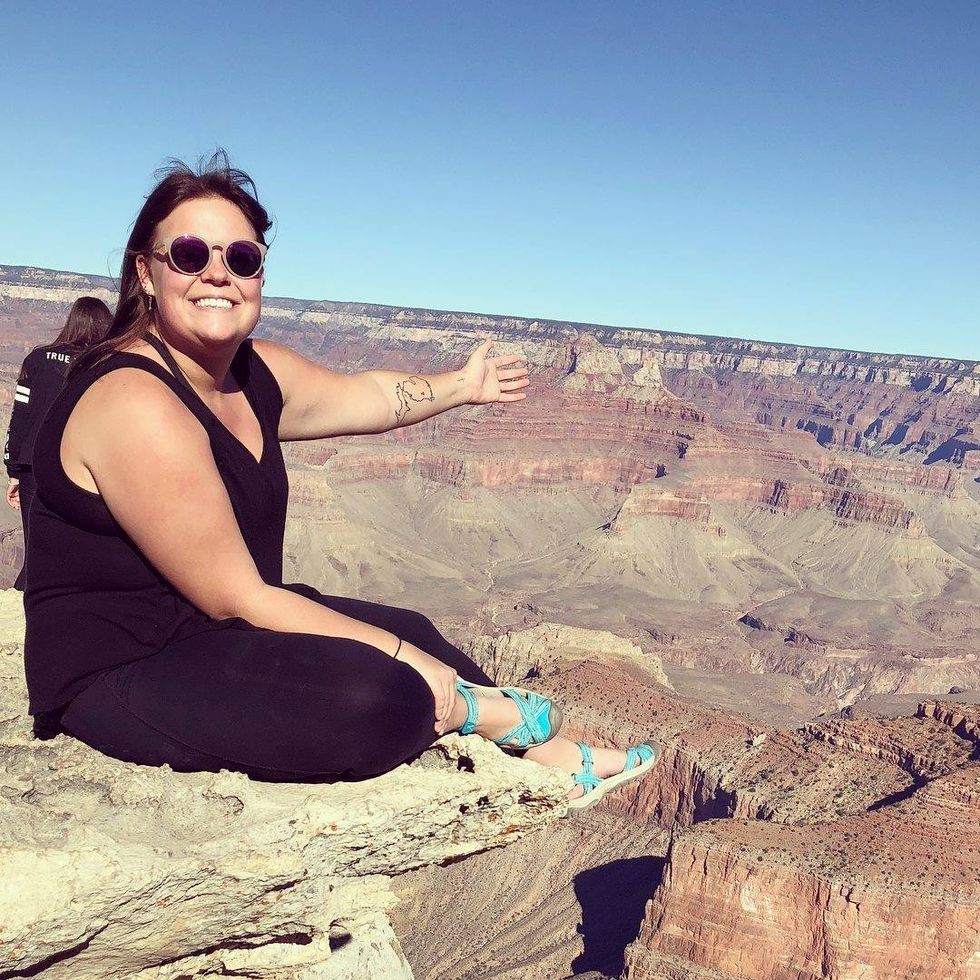
Neuropathy & a neurological brain disorder called Dystonia
I haven’t faced any specific emergencies but I’ve gone through 3 surgeries now, along with 11 doctors now trying to aid the process to figure out what is going on. This diagnosis is about 1/3 of what the final diagnosis will probably be.
I think having a positive experience with doctors is when they show they really care by listening and seeming empathetic to you. I’ve dealt with many doctors who have walked in and not asked 1 question about me or tried to relate to me. When they do that, I don’t feel as if they care. When they show interest in my health issues and outside of that, asking about my life, and showing that surgery doesn’t have to be the 1st option truly comforts me.
Author’s Note
Thank you to all of my wonderful interviewees. Your stories will make a difference. Continue to share your stories, because you never know who might understand. I asked most of you these questions because your willingness to share your journeys has helped me through my own medical journey. Stay strong.


